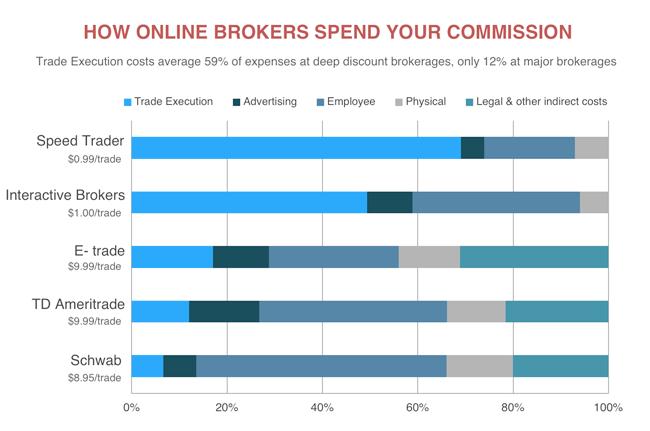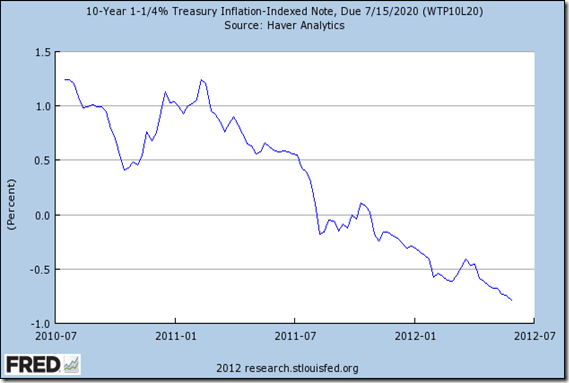 Most of us are familiar with the idea that there is no free lunch – but tech companies are very, very good at convincing us that this is not the case. If you’ve seen the news lately, you may have noticed that Facebook & Google have been in hot water because of the controversial use of their data. I don’t want to put Personal Capital in the same category, but don’t think for a second that they create and maintain all of their neat tools as a gesture of goodwill. Wondering how Personal Capital works and if it’s worth the cost? Here’s our review.
Most of us are familiar with the idea that there is no free lunch – but tech companies are very, very good at convincing us that this is not the case. If you’ve seen the news lately, you may have noticed that Facebook & Google have been in hot water because of the controversial use of their data. I don’t want to put Personal Capital in the same category, but don’t think for a second that they create and maintain all of their neat tools as a gesture of goodwill. Wondering how Personal Capital works and if it’s worth the cost? Here’s our review.
Personal Capital Review: How Does it Work?
Personal Capital’s crown jewel is an account aggregation system – a very unsexy term for something that actually does a bunch of really cool things. Essentially, you hook up all of your financial accounts – think credit cards, checking, investments, 401k from work, even your house! Personal Capital automatically crunches that data for you and lets you everything from what your total net worth is to your potential capital gains tax exposure. It’s like a financial Oracle – you after you’ve fed it your personal data, you can pretty much ask it any question you want to.
Here’s the thing – You aren’t the only one asking! Personal Capital anonymizes its data, so no one else is looking at your actual account numbers, but what they are looking at is how much you have, where you have it, and if Personal Capital can manage it. Personal Capital is actually a Registered Investment Advisor, which is a type of investment company that manages assets on a fiduciary basis (in your best interest).
This puts them ahead of traditional wealth management companies like Merrill Lynch and Morgan Stanley, but they like to sell themselves as being a FinTech company. In reality, their core business is much more similar to that of Fisher Investments, a traditional hard selling RIA firm. A lot of Personal Capital’s senior management team came from Fisher, so it should not shock you that their company culture is similar.
The Good
- .89% is a low price to pay for true fiduciary wealth management
- Personal Capital uses low-cost ETFs and efficient investment vehicles
The OK
- The amazing set of free tools is counterbalanced by the fact that all of that info is going to Personal Capital – you are a lead in their system
The Not So Good
- The advice given is highly dependant on who you talk to
- The financial advisors receive compensation primarily for getting new assets onto the books, not keeping existing clients happy
- If you don’t take advantage of or don’t want the financial planning aspect, you are paying .89% for no reason
- Vanguard has a similar experience for only .3% at higher account balances
What You Need to Know about Personal Capital
Personal Capital currently has about $8 Billion of assets under management, which is certainly more money than you or I have, but tiny compared the other giants in the investment space. What they do have, however, is over $674 billion of tracked assets via their app – assets that they’d like to get on their own platform and charge .89% to manage. Because of this, its shiny free to use tools come with a cost. Buried in the fine print which I’m sure you didn’t read is a clause that allows Personal Capital to solicit you for advisory services.
If you have more than $100,000 in financial assets linked to the platform, you’d better expect a call from Personal Capital. You can always block their number or give them a fake phone number when you sign up, but that’s not very nice, is it? Those financial advisors from Personal Capital will be calling to try and get you invested in one of the three options below, depending on how much you have.
Personal Capital operates on a 3 tiered investment plan system – but unless you’ve got over a million dollars or more to invest, there’s no guarantee you’ll talk to a Certified Financial Planner. In a world where there are over 80,000 CFPs, there’s no reason to settle for anything less. It’s important to note that Personal Capital is not a robo advisor. While the advisors will attempt to put you in a managed asset program that may trade on certain automatic triggers, there are humans involved in all investment decisions.
In fact, once you get over $200,000, they will stop investing you in an all ETF strategy and move you into a basket of individual stocks that will act like an index – which can have several advantages. The ability to tax loss harvest at the individual stock level can increase real returns and should not be discounted. In addition, they offer full financial planning for free (which in my opinion they should position much more strongly).
Is It Worth the Fee?
The truth is that these days you can get an efficient investment allocation for pennies. If you choose the three fund portfolio, the cost for that allocation is something like .05% (the average weighted expense ratio of the funds). If you wanted to dial up the sophistication a bit, you could go to a robo advisor like Wealthfront and pay .25% (plus the expense ratio of the underlying funds) for a portfolio that trades automatically and can also tax loss harvest at the stock level – so why pay .89% for any of Personal Capital’s offerings?
Here’s the key difference – at Personal Capital you are (horror stories notwithstanding) not paying just for the investment management. Personal Capital is not a robo advisor – they even made a whole video explaining they are not a robo:
Now I tend to agree with them that one of the worst deals in finance is investing with a robo advisor. They are charging you a lot for taking a quiz once – and unlike a human advisor, no one’s there to talk you out of buying a bitcoin at $20,000 or letting you know how many years retirement you’ll postpone by if you go ahead and buy the house with the chef’s kitchen. Humans cost more than any robo (though with Vanguard’s Personal Advisor Services, not much more) but the value you get back from them is measurably higher because they serve as a wall between you and your worst impulses.
In addition to the above, a good human advisor can provide counsel to make sure that assets are correctly titled, can advise on trusts and wills, help you open a Donor Advised Fund to give to charities, review your tax return and more. Robo-advisors can only invest the money you’ve given them.
At Personal Capital they claim to offer you a ‘team’ of financial advisors at $100k, two financial advisors at $200k, and access to a Certified Financial Planner once you’ve accumulated a more than a million dollars with them. Because Personal Capital pays its financial advisors mostly for converting assets from off platform to assets under management – every minute their advisors spend talking to current clients is a minute they can’t use to convince potential new clients to join Prospect Capital. Most of these advisors are really just looking to gather up any of your assets that aren’t yet managed – providing them with additional fees and charging you more.
What About Vanguard’s Personal Advisor Services?
Most people know Vanguard as a go-to asset manager of choice for inexpensive, passively managed index ETFs and Mutual Funds. They currently have over $5 Trillion of assets under management – over $1 Trillion of which their discount brokerage account now holds.
Vanguard has taken a similar approach as Personal Capital, using this $1 trillion as a base to source clients for its own managed services program, called Vanguard Personal Advisor Services. There are a couple of key differences. Vanguard’s PAS is closer to a true robo advisor until you get to $500,000 – where you can get a CFP to do one time planning for free. At $1 million under management, you get a dedicated CFP for free.
So What Should You Do?
If you’ve got a million dollars or more, Vanguard seems like the no-brainer option to get a Certified Financial Planner (if you are ok with a call center delivering advice). If you have less than that or want a more experienced CFP focused on building a long-term relationship, try one of the many independent RIA firms out there that will treat you as a client and not a number.
You may pay more, but having a long, lasting relationship with someone who intimately knows your situation easily pays for itself when you need to make big life-changing financial decisions. If you just want investment management from a robo-advisor and to keep the pesky humans away, Schwab and WiseBanyan both offer a 0% fee algorithmic solution (though you will pay a small fee from the ETF expense ratios) – so you might as well skip robo advisors charging any price at this point.
Personal Capital is an underwhelming choice in any of these slots, so unless you really value the tools they offer, it is generally best to take your money elsewhere.
Author Info: Michael V. Spelman is a Certified Financial Planner, and co-owner of Myrmidon Private Capital, an RIA specializing in retirement planning. He’s also president at The GUL Guy, a specialty life insurance comparison agency.









